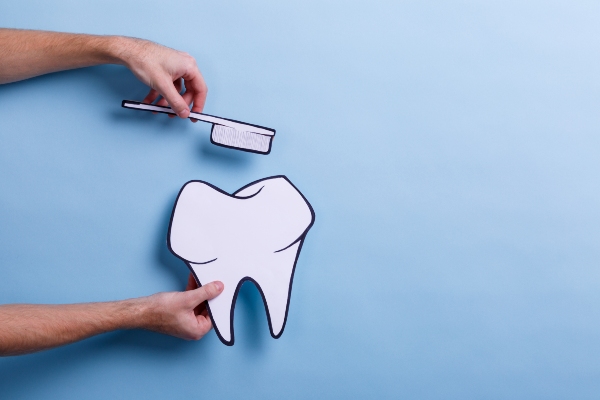What a General Dentist Does for a Toothache

A general dentist can relieve a toothache after a proper assessment. This type of dental problem is often accompanied by swelling. It may even occur with a migraine, fever, or earache. Tooth pain needs immediate treatment. Here are the details on what a general dentist can do for a toothache.
A thorough dental exam
Each toothache is different. That is why the general dentist will treat each one based on its main cause. Some aches result from minor irritation. Others involve nerve issues.
The dentist will first do a physical dental exam to assess the tooth. Ordering dental X-rays will help determine if there are any hidden causes to consider. Asking the patient about any current medical condition or medication can help form a diagnosis. Only then will the general dentist begin the treatment.
Dental filling
The general dentist will drill away the decayed tooth if there is already some cavity formation. Placing dental fillings in the holes will follow. A curing light will harden the fillings and keep them in place. Shaping and polishing the fillings will follow. This will ensure a comfortable bite. It will also help the fillings blend well with the dental structure.
Fluoride treatment
Holes or cavities develop when tooth decay worsens. Trapped food particles in the holes cause pain. Fluoride treatment from a general dentist can reverse the damage that results from tooth decay in its early stages. This natural element can repair the enamel. It can even protect the teeth by making them more cavity-resistant.
Tooth extraction
Severe tooth decay or damage can reach the deepest parts of the tooth. The general dentist will assess the tooth if the damage or infection has gone beyond the gumline. Repairs may not be enough anymore. Removing the tooth will help stop the spread of infection and the pain. Discussing possible tooth replacement types can help the patient decide which one will suit the individual the most.
Root canal
The goal of this treatment is to keep the dental structure intact. Removing the infected or damaged pulp will follow after making an opening in the tooth. Cleaning, disinfecting, and drying the pulp chamber will come next. The general dentist will fill the chamber with gutta-percha, which will stabilize the tooth. Placing a custom dental crown over the treated tooth will protect and strengthen it.
Preventing a toothache
This condition can happen to anyone at any given time. Dental damage causes pain, which differs in severity. Stopping the pain is a priority. Dismissing it will allow the damage to worsen. The ideal way to prevent dental damage is to care for one’s teeth. Below are some tips on how to keep toothaches at bay:
- Drink more water to buffer the bacterial acids in the mouth. Take in non-acidic foods as well.
- Floss every day to get rid of the plaque and food particles between teeth.
- Seeing the dentist every six months will enable the patient to get professional dental cleaning. The general dentist will floss, scale, and brush using more advanced tools.
- Brushing for two minutes, two times a day, using a soft-bristled toothbrush and fluoride toothpaste, can remove food particles and plaque.
- Limit one’s sugar intake. This will prevent bacteria from feasting and releasing acids that destroy the enamel.
- Reduce one’s intake of acidic drinks and foods. Acidic foods can erode the enamel.
Providing pain relief
The general dentist can prescribe analgesics that can reduce pain. Many formulations can target different levels of tooth pain. Opioid analgesics need a prescription to treat moderate to severe pain. Non-opioid analgesics can treat moderate tooth pain even without a prescription. The difference is that non-opioid pain relievers are not addictive.
Causes of toothaches
Each tooth contains a dental pulp that holds blood vessels and nerves, as well as connective tissues. Pressure and pain can begin when there is irritation in the pulp. The general dentist will determine the main cause of the tooth pain. Below are the common culprits:
- Sensitive teeth
- Tooth decay
- Jaw-clenching and teeth-grinding
- Gum disease
- Dental fracture
- Tooth pulp inflammation
- Impacted tooth
- Abscess
Seeing a general dentist
A toothache causes intense discomfort. An individual can lose focus. The pain can even deprive the individual of proper rest. However, a toothache may be a symptom of a much more serious dental condition, such as an infection. This can manifest through gum inflammation, earache, and fever. This is the right time to see the general dentist.
Your general dentist can help get rid of a toothache with the right treatment
Dental pain can cause your entire body to feel bad. That is why resolving it is vital. The treatment for your toothache will depend on its cause. Working with your general dentist will allow you to achieve relief and better dental health.
Request an appointment here: https://www.palmbeachdentistry.com or call Palm Beach Dentistry at (561) 225-2057 for an appointment in our Delray Beach office.
Check out what others are saying about our dental services on Yelp: General Dentist in Delray Beach, FL.
Recent Posts
General dentists spend a significant portion of their time performing preventative dental treatments. These treatments reduce the odds of common dental issues, like tooth decay and gum disease, from developing in the future. Preventative care saves patients time and money by making it less likely that they will develop severe dental problems that call for…
One aim of general dentistry is to make the patient’s experience as positive as possible. A dentist who is good at their job will achieve this feat in two ways. First, they will use proactive, preventative measures that keep intensive procedures to a minimum. Second, the dentist will use every tool at their disposal to…
You can have restorative dental procedures from your general dentist to replace defective or damaged parts of your teeth. Restorative procedures are used to replace broken or missing teeth and are among the most common treatments and procedures that dentists handle regularly. They restore the function and aesthetics of teeth and supporting structures while helping…
Wondering why a general dentist may recommend a deep dental cleaning? Read on to learn more. A general dentist may recommend a deep dental cleaning if the patient shows signs of a severe form of gum disease known as periodontitis. This condition can put the long-term health of the gums and jawbone in jeopardy and…


